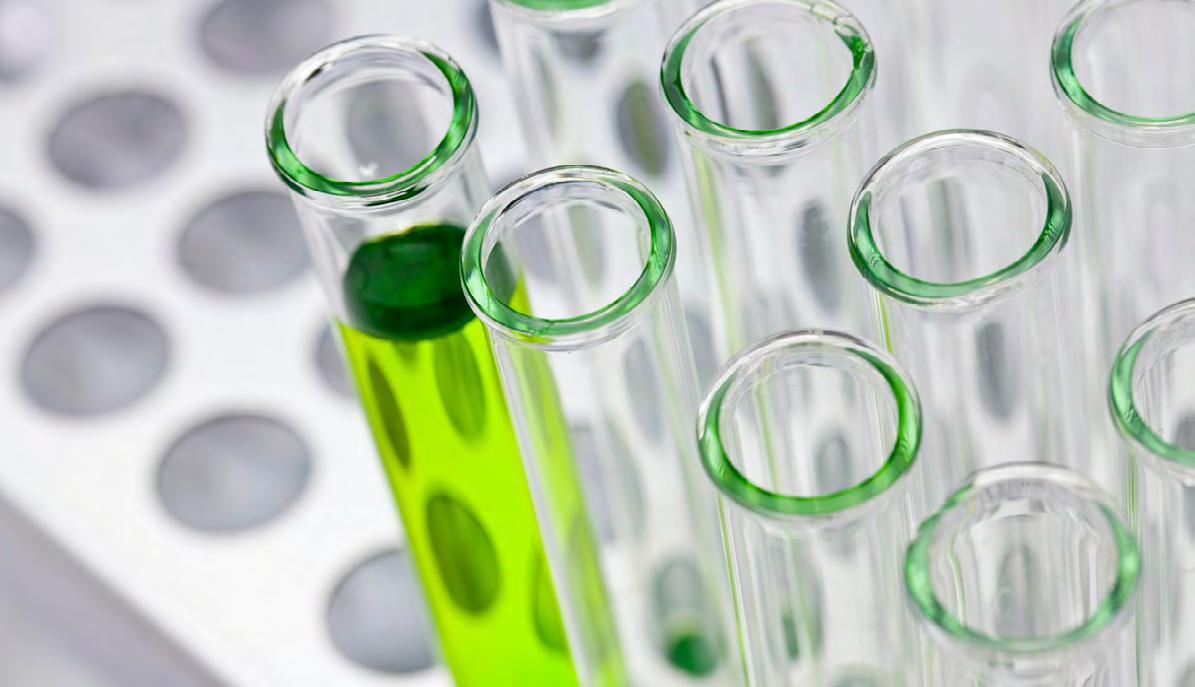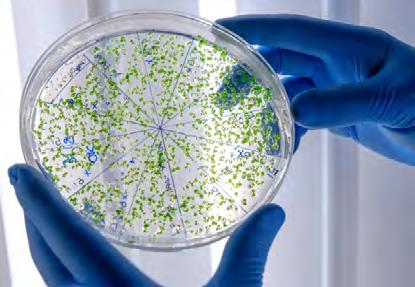
5 minute read
Thailand is gearing up to become Asia’s biotechnology centre
Thailand Board of Investment (BOI)
Defining biotechnology
Advertisement
At its simplest, biotechnology is technology based on biology. Biotechnology harnesses cellular and biomolecular processes to develop technologies and products that help improve our lives and the health of our planet. We have used the biological processes of microorganisms for more than 6,000 years to make useful food products, such as bread and cheese, and to preserve dairy products.
Modern biotechnology provides breakthrough products and technologies to combat debilitating and rare diseases, reduce our environmental footprint, feed the hungry, use less and cleaner energy, and have safer, cleaner and more efficient industrial manufacturing processes.
Currently, there are more than 250 biotechnology health-care products and vaccines available to patients, many for previously untreatable diseases. More than 13.3 million farmers around the world use agricultural biotechnology to increase yields, prevent damage from insects and pests, and reduce the impact of farming on the environment.
Global scale, universally significant
Based on its applications, the global biotechnology market is divided into the bio-pharmaceutical, bio-services, bio-agriculture, bio-industrial segments. In 2015, the entire market was valued at approximately baht 11.56 trillion (US$ 330.3 billion), and was expected to reach baht 14.5 trillion (US$ 414.5 billion) by the end of 2017, and upwards of baht 27 trillion (US$ 775.2 billion) by 2024, which was an average annual growth rate well into double-digits, according to a new research report by Global Market Insights, Inc.
Increasing demand for agricultural and food products due to the growing population is having a positive impact on the growth of the industry. Factors such as limited availability of agricultural land, water shortages, low-yielding crops, and pest invasions are encouraging researchers to develop innovative agricultural technologies through extensive research and development (R&D) activities. According to BCC Research, the global market for agricultural biotechnology was expected to reach baht 1.6 trillion (US$ 46.8 billion) by 2019, with a five-year compound annual growth rate of 11 per cent. The biotechnology tools category, the fastest growing segment of the market, is growing at a phenomenal 49.9 per cent CAGR.
An increase in government funding and widespread technological advancements has allowed Thailand’s biotechnology industry to experience a high growth rate in recent years. According to Mr. Rutjawate Taharnklaew, Vice-President of the Betagro Research and Development Centre, there are three major segments of this industry in Thailand which have been growing significantly and still have considerable potential for future growth – medical biotechnology, agriculture-biotechnology and cosmetic-biotechnology.

Government efforts to make Thailand the biotechnology centre of Asia
The Government of Thailand has been aggressively promoting growth and fostering developments in biotechnology, in an effort to transform Thailand into the centre of biotechnology in Asia. The Government established the National Center for Genetic Engineering and Biotechnology (BIOTEC), thereby laying a solid foundation for future biotech developments.
The Government also launched the Biotechnology Development Policy Framework 2012-2021, a collaboration between the National Science Technology and Innovation Policy Office (STI) and BIOTEC. The aim of this multi-billion-baht plan is to promote sustainable growth in the biotechnology industry through research funding, strategy mapping and investment incentives. Under this policy framework, strong emphasis has been placed on enhancing research and development (R&D) in the private sector and on utilizing the intellectual capital created from the biotech revolution to strengthen the country’s overall competitiveness.
The preferred destination for biotech companies
Biotechnology companies in Thailand enjoy a variety of competitive advantages, including intellectual property protection and a robust and technically-equipped workforce. Currently, 24 universities across the country have the combined capacity to supply approximately 7,000 students with a biotechnology background each year.
Thailand is located in the hot and humid climatic zone, which supports a variety of tropical ecosystems and provides wider niches for the survival of organisms. The country is able to support a much larger variety of plant, animal and microbe species. Thailand has approximately 15,000 species of plants that account for approximately 10 per cent of estimated total number of plant species found globally, according to the European and Mediterranean Plant Protection Organization (OEPP). This is an advantage for the country in its efforts to become a research hub for this growing biotechnology field.
In addition, a well-established infrastructure that includes various pilot plants in Thailand, such as one at the Fermentation Technology Research and Service Center (FTC) located at the Faculty of Agro-Industry, Kasetsart University, which operates with a capacity of 500 litres, collaboration of both private and public sectors, i.e., Betagro, the Agricultural Research Development Agency (ARDA) under the Ministry of Agriculture, and Kasetsart University. Several more pilot plants located at Mahidol University, King Mongkut’s University of Technology Thonburi and Chulalongkorn University with a greater capacity scale of 1,000-3,000 litres. These pilot plants allow companies and even startups to scale up their research before commercializing their innovations.
Government and organisational support is also provided through the National Science and Technology Development Agency (NSTDA), which is home to four national research centres (BIOTEC, MTEC, NANOTEC and NECTEC) and one technology management centre (TMC). NSTDA acts as a bridge between the requirements of academic research and innovation in the industry.
The Thailand Science Park (TSP), the first technology and innovation hub of Thailand, serves as a one-stop service centre to assist both foreign and local companies engaged in scientific and technological research. TSP is a key hub for research and development where specialists and researchers from industry, academia and NSTDA collaborate to further inspire and stimulate the formation and growth of knowledge-based businesses. A network of 1,600 full-time researchers and technicians, of whom around 400 hold doctorate degrees, can be found at TSP. TMC also provides important support in biotechnology through its Technology Licensing Office (TLO), which is responsible for the licensing of intellectual property.
Thailand’s Board of Investment (BOI) is doing its part to support the growth and development of the biotechnology sector. BOI investment incentives for biotechnology companies in Thailand include a tax exemption on import duties on machinery, an eight-year exemption of corporate income tax, an additional five-year 50 per cent reduction of corporate income tax on net profit, a 10-year double deduction on transportation, electricity and water supply costs, and a deduction from net profit of 25 per cent of investment in infrastructure installation and construction costs.

For further details about privileges, conditionality and the application process, please visit www.boi.go.th.
Source: Thailand Investment Review, vol. 27, No. 2, February 2017; available at https://www.boi.go.th/ upload/content/TIR_Feb17_vF_93086.pdf.









